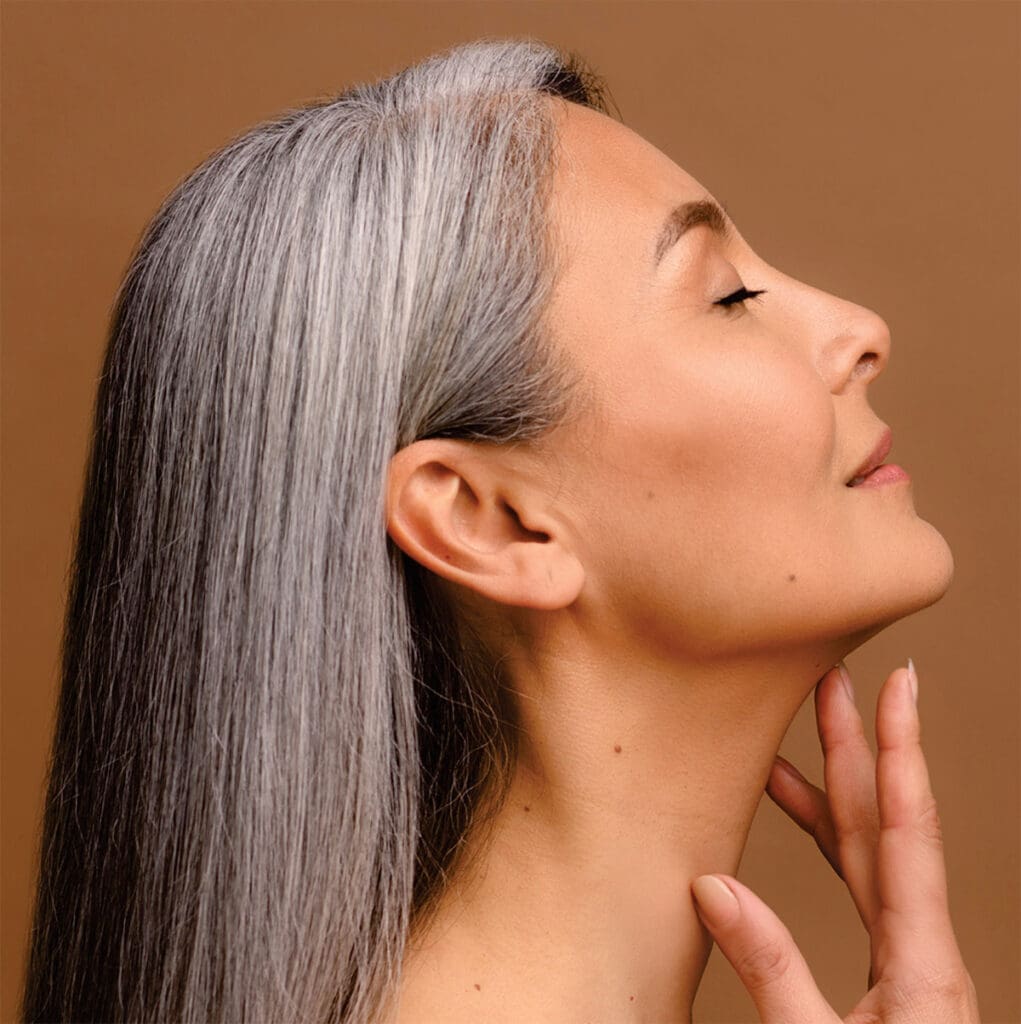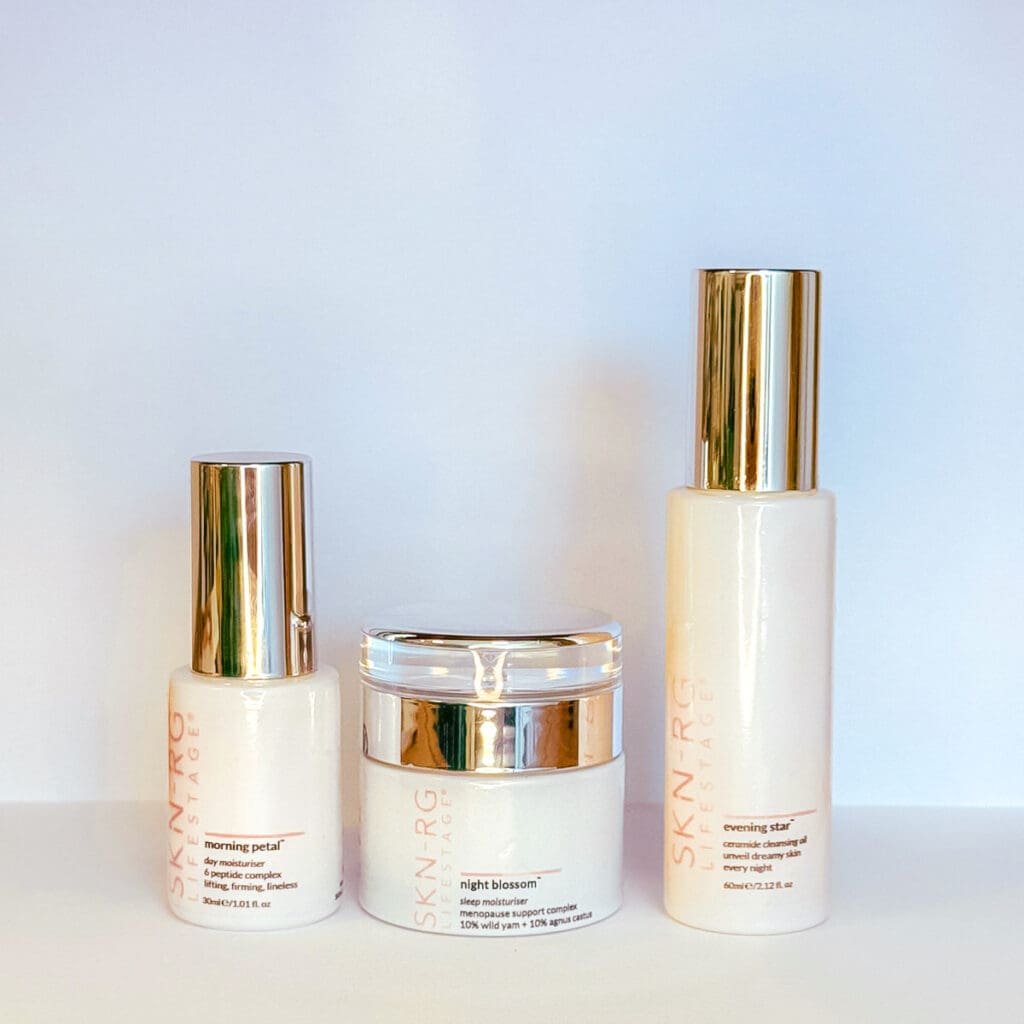Free shipping within NZ over N$150 and AUS over A$350. Shipping to AUS from A$9.90.
Free shipping within NZ over N$150 and AUS over A$350. Shipping to AUS from A$9.90.



Here’s a breakdown of what happens to your skin as you enter menopause and beyond.
Loss of Elasticity and Firmness
As estrogen levels drop, collagen and elastin production decline, resulting in thinner skin, wrinkles, and sagging. Over time, the skin loses its elasticity, leading to deeper lines and a less youthful appearance.
Dryness and Thinner Skin
Estrogen helps the skin retain moisture, but as levels fall, skin hydration decreases. This can lead to static wrinkles (those that don’t fade when the face is relaxed) and a more fragile skin barrier, making the skin more sensitive and prone to irritation.
Fat Loss and Changes in Facial Features
Fat plays a crucial role in skin fullness and contour. During menopause, fat stores shrink, particularly in the face, leading to volume loss around the cheeks, eyes, and jawline. Simultaneously, fat may accumulate in areas like the chin and jaw, altering facial shape.
Reduced Circulation and Increased Sensitivity
Hormonal changes affect blood flow, reducing nutrient delivery to the skin. This impacts melanocytes (responsible for pigmentation) and Langerhans cells (immune defense), leading to increased skin sensitivity and potential tingling sensations as nerve endings degrade.
Changes in Skin’s Structure
The reduction in collagen and elastin weakens skin structure, making it more fragile. The skin-epidermis border becomes less defined, and skin permeability increases, making it more susceptible to irritants and environmental factors.
Hormonal Influence on Skin Health
Skin is full of hormone receptors, particularly in the face and lower limbs. As hormone levels drop, skin regeneration slows down, accelerating the visible signs of aging.
Chronic Skin Conditions
Hormonal changes may exacerbate conditions like rosacea, acne, and hirsutism (excessive hair growth). Conversely, some skin conditions may improve due to reduced hormone activity.
Menopause, typically around age 50, often triggers various skin-related changes. Professional treatments can help restore moisture, stimulate collagen production, and support cell regeneration. A tailored daily skincare routine slows down the aging process.
Focus on Specific Concerns Rather Than General Anti-Aging Products
Instead of following skincare trends or using harsh anti-aging products, target specific concerns like redness, spots, and dryness with gentle, effective formulas.
Prebiotics and Probiotics for Skin Barrier Health
Products infused with prebiotics and probiotics, like Prologic Probiome Serum, help strengthen the skin’s barrier, improving resilience over time.
Ceramides and Peptides for Hydration
To address dryness, opt for products with ceramides, Skin-RG C3 Ceramide Moisturiser, and peptides, Skin-RG Morning Petal Moisturiser, which replenish the skin’s natural barrier and improve texture.
Menopausal skin benefits from nourishing oils Skin-RG Evening Star Cleansing Oil, creams Skin-RG Night Blossom Sleep Moisturiser, (though not recommended for high-level HRT users), and facial mists Mukti Rose Blossom Hydrating Mist to maintain hydration throughout the day.
Sun Protection Is Essential
A broad-spectrum SPF like Skin-RG SPF 30 Pure Shield is crucial to prevent further skin damage and premature aging.
Be Cautious with Retinol
Retinol can irritate menopausal skin due to its compromised barrier. A gentler alternative, like Skin-RG The Matrix and Mukti Organics Vital A Elixir (a plant-based retinol), is a better option.
Your skin’s needs change during menopause, so be mindful of its sensitivities and adjust your routine accordingly.
Don’t hesitate to ask for expert help to adjust to this new phase in life. Ilu Hub skincare experts are here to assist, either online through consultation or in person at our Ilu Hub salon in Wanaka, New Zealand.
More posts on these topics:
Stay updated with our latest skincare insights and news.
Subscribe to receive our newest blog posts directly in your inbox